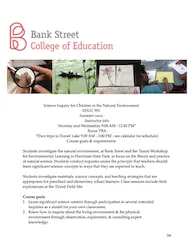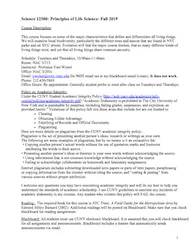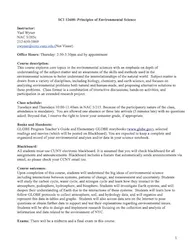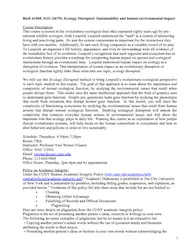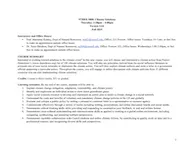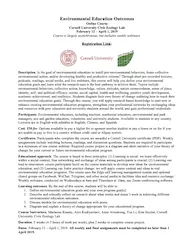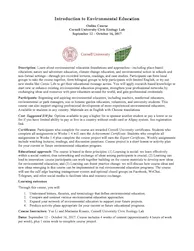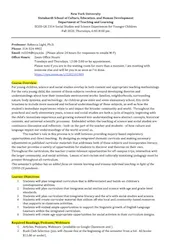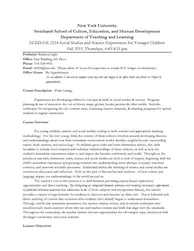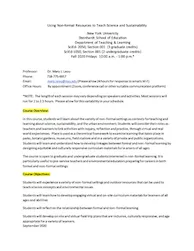Online Course
Cornell University Civic Ecology Lab
Description. Is the goal of environmental education to instill pro-environmental behaviors, foster collective environmental action, and/or developing healthy and productive citizens? Through short pre-recorded lectures, podcasts, readings, social media, and live webinars, this course will help you define your environmental education goals and learn what the research says is the best pathway to achieve them. Topics include environmental behaviors, collective action, knowledge, values, attitudes, nature connectedness, sense of place, identity, self- and political-efficacy, norms, social capital, health and wellbeing, positive youth development, academic achievement, and resilience. Students diagram their own theory of change outlining how to reach their environmental education goals. Through this course, you will apply research-based knowledge to start new or enhance existing environmental education programs, strengthen your professional networks by exchanging ideas and resources with peer educators and university students around the world, and gain professional credentials.

